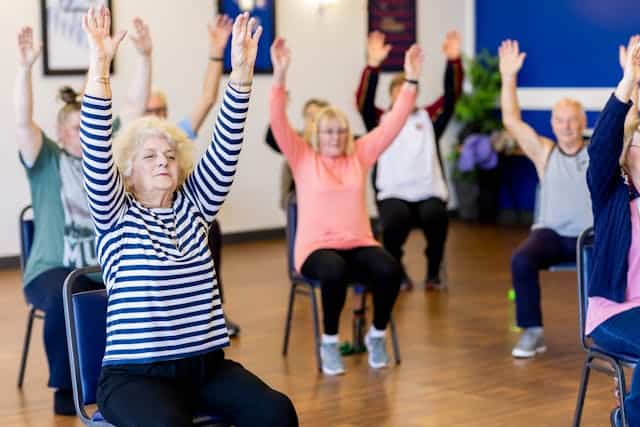
Children and youth’s movement behaviours differed across phases and by geographic region throughout the COVID-19 pandemic in Nova Scotia, Canada: an explanatory sequential mixed-methods study
November 6, 2023
Changes in Desk-Based Workers’ Sitting, Standing, and Stepping Time: Short- and Longer-Term Effects on Musculoskeletal Pain
November 20, 2023A paper titled “Mentally active but not inactive sedentary behaviors are positively related to adolescents’ cognitive-academic achievements, a cross-sectional study — The cogni-action project” was recently published in Mental Health and Physical Activity. A summary of the article and citation details are re-posted below. The full article can be found here.
ABSTRACT
Excessive adolescent sedentary behaviors (SBs) may affect cognitive-academic achievements; however, findings vary according to the SB evaluated and their mental requirements. This study aimed to understand the multivariate association between different SBs and diverse cognitive-academic achievements as a primary analysis. As a secondary one, we differentiated between mentally active and inactive SBs. In this study, 1296 Chilean adolescents (10–14 years old) reported their SB via questionnaires. Cognitive performance was assessed with a neurocognitive battery, and academic achievement was based on school grades. Canonical correlation analysis was performed to determine the mode of covariation (MofC) between two sets of variables. The first set accounted for eight SBs (five considered as “active mentally” and three as “inactive mentally”). The second set accounted for 13 cognitive and academic variables (eight cognitive tasks and five school subjects). Several covariates and a cluster (schools, k = 19) were also included in the analysis. The primary analysis revealed a single significant MofC, with a small canonical relationship (r = 0.22, p = 0.002). This MofC indicated that time spent using computers and engaging in scholarly tasks at home was positively correlated with cognitive processing speed as well as with academic scores in English and History. Secondary analysis revealed two significant modes of covariation. The first confirmed the primary result (r = 0.21, p = 0.001), while the second highlighted the role of time spent playing video games as the sole contributing factor linked to inhibitory control (r = 0.17, p = 0.034). These findings indicate a small positive relationship between certain mentally active SBs and cognitive-academic achievements, emphasizing the need for further comprehensive research to understand these complex relationships.
CITATION
Cristi-Montero, C., Hernandez-Jaña, S., Zavala-Crichton, J.P., Tremblay, M.S., Ortega, F.B., Feter, N., Mota, J., Aguilar-Farias, N., Ferrari, G., Sadarangani, K.P., & Gaya, A. (2023). Mentally active but not inactive sedentary behaviors are positively related to adolescents’ cognitive-academic achievements, a cross-sectional study — The cogni-action project. Mental Health and Physical Activity, 100561. https://doi.org/10.1016/j.mhpa.2023.100561
Photo by Annie Spratt on Unsplash




